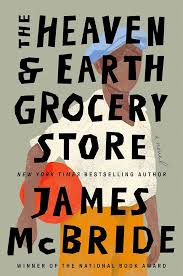Chapter 15: The Worm
byChapter 15: The Worm opens with Fioria Carissimi, a woman not easily swayed by rumors, finding herself caught in a swirl of conflicting stories. The gossip that circulates through her local church group paints an unsettling picture—a Jewish woman and a deaf Black child entangled in a mysterious incident at a local store. Some claim the Jews tried to protect the child; others insist they called the police on him. These contradictions leave Fioria uneasy. Though she usually avoids town drama, this story strikes close to home. Her son, Enzo—affectionately known as Big Soap—is friends with people involved, including Fatty, a local figure with deep roots in both Black and Jewish communities. The gossip isn’t just hearsay anymore; it carries the weight of something personal.
As Fioria visits her friend Pia to sort out the puzzle, the conversation turns tense. Pia, sharp-tongued and cynical, voices her suspicions about the incident, particularly targeting a local doctor whose name keeps surfacing with a shadow of distrust. Pia hints at grievances rooted in class, race, and personal insult—grievances that Fioria begins to recognize as more than bitterness. Their discussion illustrates the complexity of Chicken Hill life, where friendship, race, and power cross paths in unpredictable ways. The small community depends on rumors as a form of information, especially when official truths are slow, sanitized, or untrustworthy. And while Fioria wants to remain impartial, her instincts as a mother and neighbor draw her deeper. She realizes this story isn’t just about an accident; it reflects a fracture in how people trust one another, especially across color and religious lines.
Determined to find clarity, Fioria confronts Enzo and Fatty. Their conversation moves slowly but honestly, revealing a tragic timeline. Dodo’s mother, a woman trying to hold her family together, died in a household fire, forcing relatives to seek help—help that came with painful consequences. Fatty explains that Chona, the Jewish woman injured in the store incident, was one of the few who treated Dodo with care. But when tensions rose and misunderstandings snowballed, the police were called. Whether by accident or design, the situation turned against Dodo. Fioria listens carefully, piecing together a picture different from the one offered by the gossip mill. She recognizes the sadness and injustice behind the boy’s silence, the community’s fear, and the doctor’s looming presence.
The more she learns, the more Fioria understands that the real problem isn’t a single event—it’s the way people refuse to listen. The racial divide in town, long ignored, makes it easier to assume the worst of someone like Dodo, and harder to question someone like the doctor. As a mother, Fioria aches for the boy. As a neighbor, she worries about how fragile the truth becomes when filtered through prejudice and fear. Her quiet conversations with Enzo and Fatty lead her to reflect on how the town, though small, holds too many secrets and too few willing to speak up. What happened in the store wasn’t just a mistake. It was a symptom of deeper wounds—unspoken, but always present.
In communities like Chicken Hill, truth travels slower than rumor. Fioria realizes that protecting people doesn’t always mean defending them blindly—it means pushing for honesty, even when it’s uncomfortable. She decides to speak with others, to ask the hard questions and listen longer before judging. The incident may have begun with a single misunderstanding, but the fallout reveals how tightly wound racism, loyalty, and silence have become in their town. Fioria, despite her age and quiet disposition, becomes one of the few to question what most would rather ignore. And as she watches her son step into adulthood among friends others would dismiss, she knows her fight isn’t just for Dodo. It’s for every child who walks those hills wondering if their life matters to someone.


